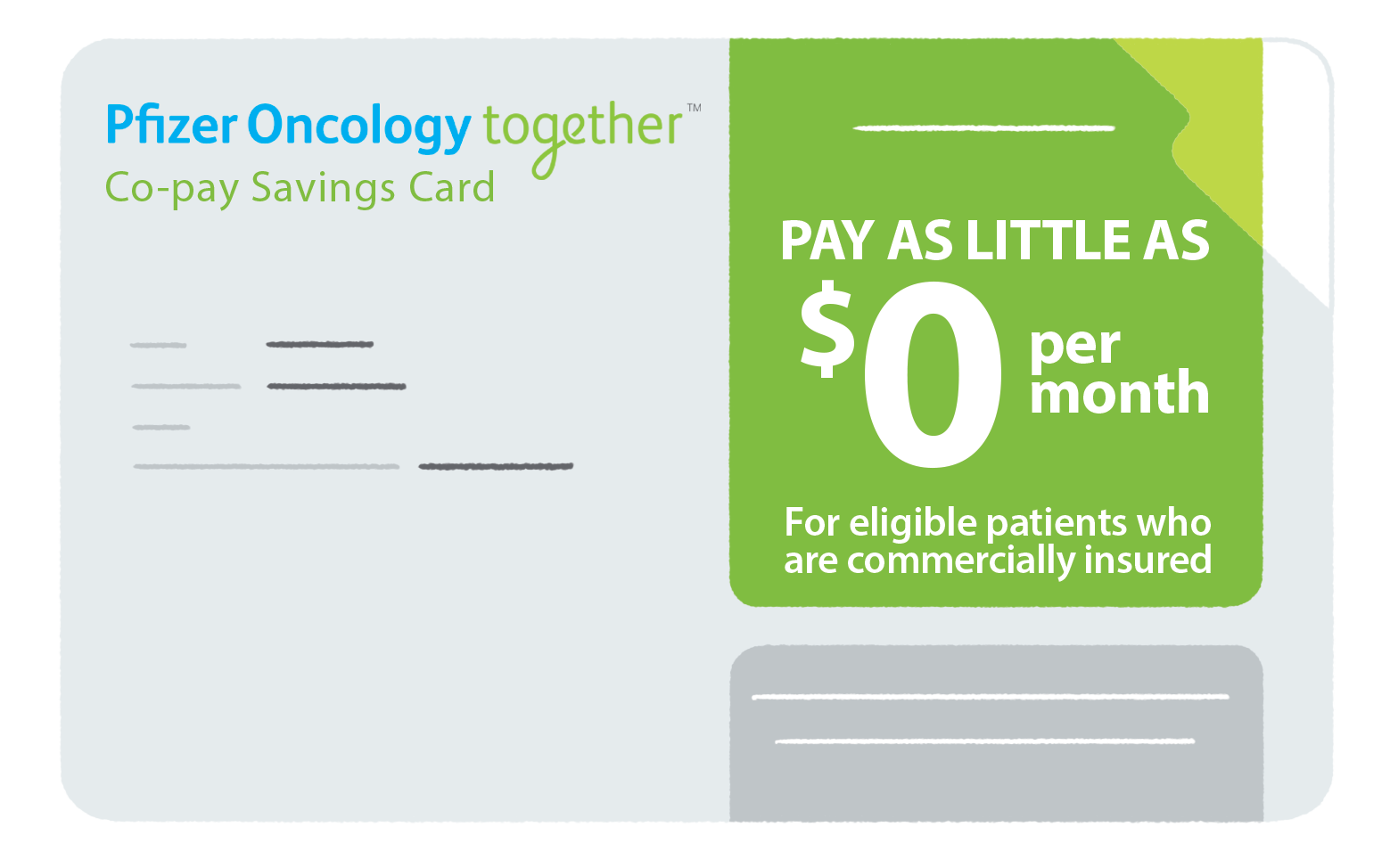Important Safety Information
LORBRENA® (lorlatinib) may cause serious side effects, including:
-
Liver problems due to interactions with other medicines. It is important to know what medicines should not be taken with LORBRENA.
-
Central nervous system (CNS) effects. LORBRENA may cause CNS effects, including problems with thinking (such as forgetfulness or confusion), changes in mood (such as depression and thoughts about suicide or dying), psychotic effects such as seeing or hearing things that are not real (hallucinations), seizures, changes in speech and changes in sleep. Tell your healthcare provider if you experience new or worsening symptoms of CNS effects.
-
Increases in the cholesterol and triglycerides (lipid) levels in your blood. Most people will have an increase in the lipid levels in their blood during treatment with LORBRENA.
- If you have increases in the lipid levels in your blood during treatment with LORBRENA, your healthcare provider may need to start you on a medicine to lower the levels. If you are already taking a medicine to lower the lipid levels in your blood, your healthcare provider may need to increase your dose of that medicine.
- Your healthcare provider should do blood tests to check the lipid levels in your blood before starting treatment, 1 to 2 months after starting treatment, and during treatment with LORBRENA.
-
Heart problems. LORBRENA may cause very slow or abnormal heartbeats. Your healthcare provider should check your heart rhythm (electrocardiogram or EKG) before starting and during treatment with LORBRENA. Tell your healthcare provider right away if you feel dizzy or faint or have abnormal heartbeats. In some people, these problems are severe, and your healthcare provider may need to have you stop taking LORBRENA or have a pacemaker placed.
-
Lung problems. LORBRENA may cause severe or life-threatening swelling (inflammation) of the lungs during treatment that can lead to death. Symptoms may be similar to those from lung cancer. Tell your healthcare provider right away if you have any new or worsening symptoms of lung problems, including trouble breathing, shortness of breath, cough, or fever.
-
High blood pressure (hypertension). Your healthcare provider should check your blood pressure before starting treatment, 2 weeks after starting treatment, and then at least every month during treatment with LORBRENA. Your healthcare provider may need to start or change your blood pressure medicine if you have high blood pressure during treatment with LORBRENA. Tell your healthcare provider right away if you get signs or symptoms of high blood pressure, including headaches, dizziness, blurred vision, chest pain or shortness of breath.
-
High blood sugar (hyperglycemia). LORBRENA may increase your blood sugar levels. Your healthcare provider should do blood tests to check your blood sugar levels before starting and during treatment with LORBRENA. Your healthcare provider may need to start or change your blood sugar medicine to control your blood sugar levels. Tell your healthcare provider right away if you get new or worsening signs and symptoms of high blood sugar, including feeling very thirsty, needing to urinate more than usual, or feeling very hungry, sick to your stomach, weak or tired, or confused.
If you have serious side effects during treatment with LORBRENA, your healthcare provider may change your dose, stop your treatment for a period of time, or completely stop treatment with LORBRENA.
Before taking LORBRENA, tell your healthcare provider about all of your medical conditions, including if you:
- have kidney problems
- have had episodes of depression or seizures
- have high levels of cholesterol or triglycerides in your blood
- have problems with your heartbeat
- have lung or breathing problems
- have high blood pressure
- have diabetes or high blood sugar
- are pregnant or plan to become pregnant. LORBRENA can harm your unborn baby.
- Your healthcare provider will do a pregnancy test before you start treatment with LORBRENA.
- Tell your healthcare provider right away if you become pregnant or think you may be pregnant during treatment with LORBRENA.
-
— Females who are able to become pregnant should use effective non-hormonal birth control during treatment with LORBRENA and for at least 6 months after the final dose of LORBRENA. Birth control pills (oral contraceptives) and other hormonal forms of birth control may not be effective if used during treatment with LORBRENA. Talk to your healthcare provider about birth control choices that are right for you during this time.
-
— Males who have female partners who are able to become pregnant should use effective birth control during treatment with LORBRENA and for at least 3 months after the final dose of LORBRENA.
- are breastfeeding or plan to breastfeed. It is not known if LORBRENA passes into your breast milk. Do not breastfeed during treatment with LORBRENA and for 7 days after the final dose. Talk to your healthcare provider about the best way to feed your baby during this time.
Tell your healthcare provider about all the medicines you take, including prescription medicines, over-the-counter medicines, vitamins, and herbal supplements. LORBRENA may affect the way other medicines work and other medicines may affect the way LORBRENA works, causing side effects.
Know the medicines you take. Keep a list of them to show to your healthcare provider and pharmacist when you get a new medicine.
Do not take LORBRENA if you take certain other medicines called strong CYP3A inducers. Ask your healthcare provider for a list of these medicines if you are not sure.
The most common side effects of LORBRENA include:
- swelling in your arms, legs, hands, and feet (edema)
- numbness and tingling feeling in your joints or arms and legs (peripheral neuropathy)
- weight gain
- problems with thinking, such as forgetfulness or confusion
- tiredness (fatigue)
- difficulty breathing
- pain in your joints
- diarrhea
- changes in mood, such as depression and irritability
- high cholesterol and triglyceride levels in the blood
- cough
LORBRENA may cause decreased fertility in males. In males, this could affect your ability to father a child. Talk to your healthcare provider if you have concerns about fertility.
These are not all of the possible side effects of LORBRENA. For more information, ask your healthcare provider or pharmacist.
Call your doctor for medical advice about side effects. You may report side effects to FDA at 1-800-FDA-1088.
INDICATION
LORBRENA is a prescription medicine that is used to treat adults with non-small cell lung cancer (NSCLC) that is caused by an abnormal anaplastic lymphoma kinase (ALK) gene and that has spread to other parts of your body.
Your healthcare provider will perform a test to make sure that LORBRENA is right for you.
It is not known if LORBRENA is safe and effective in children.
Please see Full Prescribing Information and Patient Information.









